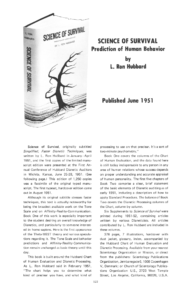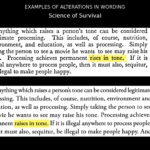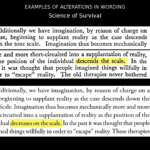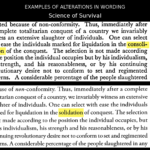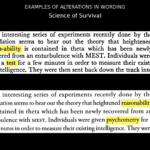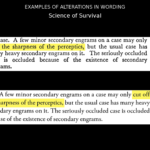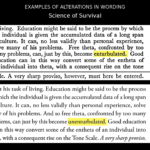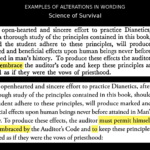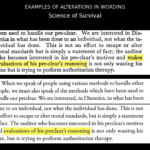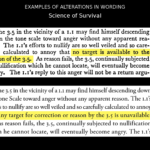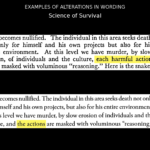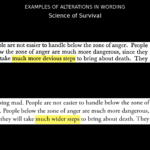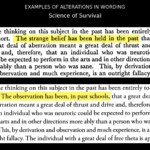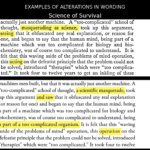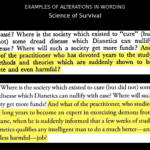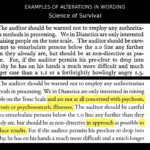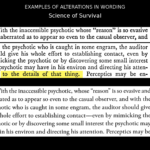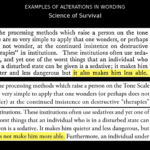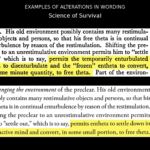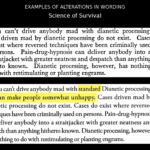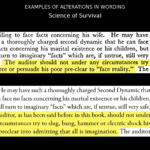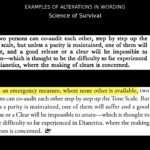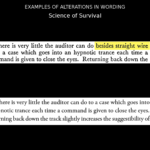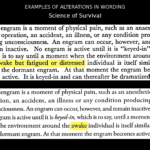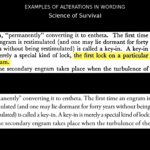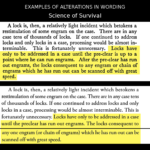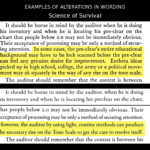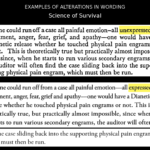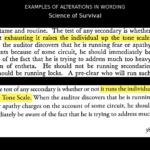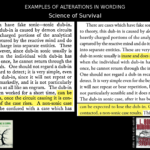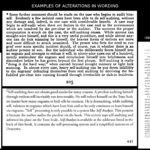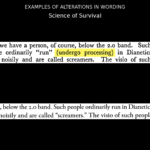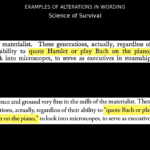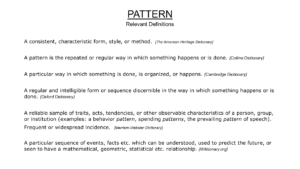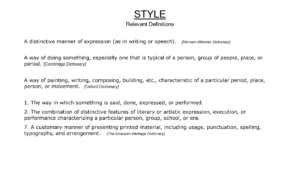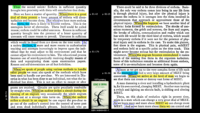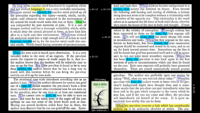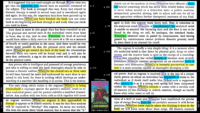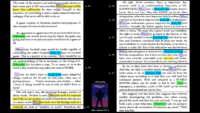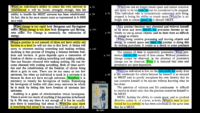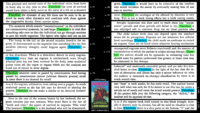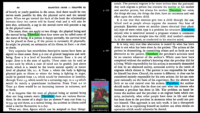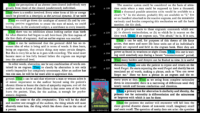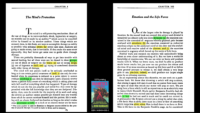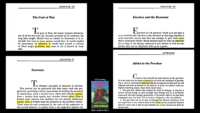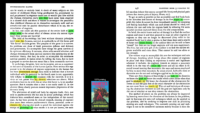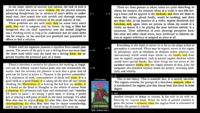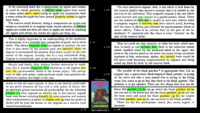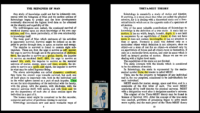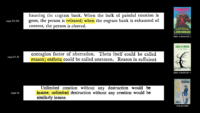SOS
Page last updated:
Science of Survival
ANALYSIS OF CHANGES IN PUNCTUATION
Note, I worked on these videos to the point of having a clear and complete presentation to get the point across in a professional manner. I know there is room for improvement, but I only have so much time to dedicate to such production which takes a LOT of work. I think the best way to view these videos is to download them to your computer so you can have better control of making pauses or going back if you need to. You should be able to right-click on the video and choose “Save Video As…” In Firefox that option appears only when the video is playing.
EXAMPLES OF ALTERATIONS IN WORDING
I produced 32 slides for the above video, but I only managed to produce recordings for the first 11 slides and I have no intention for making any more recordings. Here are all the slides that I made for this video:
Note, there are more slides and information about alterations in Science of Survival in earlier report at http://www.truelrh.com/5106_SOS/alter_SOS.html
RON HUBBARD’S WRITING STYLE /
PATTERN OF SENTENCE COMPOSITION
Once I finished making recordings on the subject of punctuation, I decided to build on my noted observation of similarity in sentence composition and punctuation from one book to the next and look for specific pattern commonalities across a number of books. I started from the point I made in a segment on OTHER BOOKS:
Usually, an adverb like THEREFORE should be punctuated with a comma; but, as we have seen, it seems to be a reoccurring trend in the original text across different books that such conjunctive adverbs or transitional phrases are not always punctuated with a comma.
This is an example of a kind of observation I was talking about that indicates toward the fact that the text for these different books was essentially produced by the same person, obviously the author of these materials L. Ron Hubbard, who also made the same type of choices when it comes to punctuation.
| Conjunctive Adverbs |
|
Then I specifically looked for conjunctive adverbs THEREFORE and THUS that I noticed were often not punctuated, and it was a similar pattern as with a dependent clause starting with “When” – some were not punctuated and some were. Note, I also have conjunctive adverbs highlighted in the slides above. |
There was something very satisfying about going through this exercise. I started with a LOGICAL THOUGHT of how Hubbard would make the same type of choices when it came to sentence composition and punctuation, and this is exactly what I found across different publications – repeating pattern / style. It was yet another kind of proof that all these publications were written by one and the same person which is consistent with information in the original descriptions for many of these books that they were written / typed by L. Ron Hubbard.
